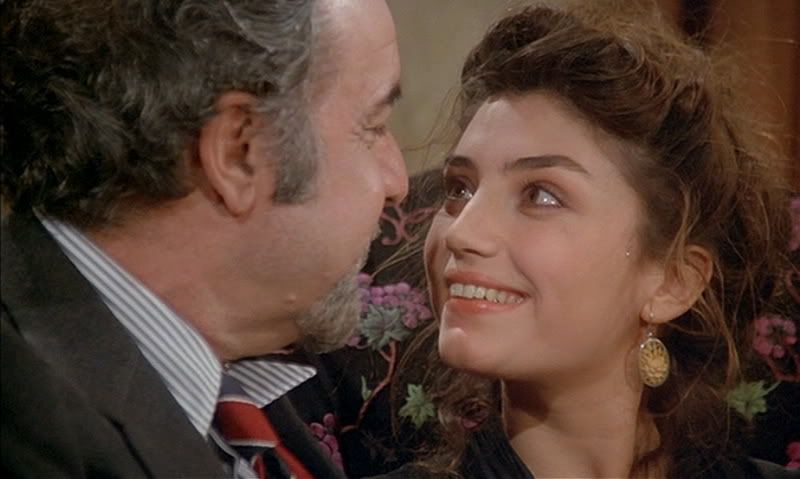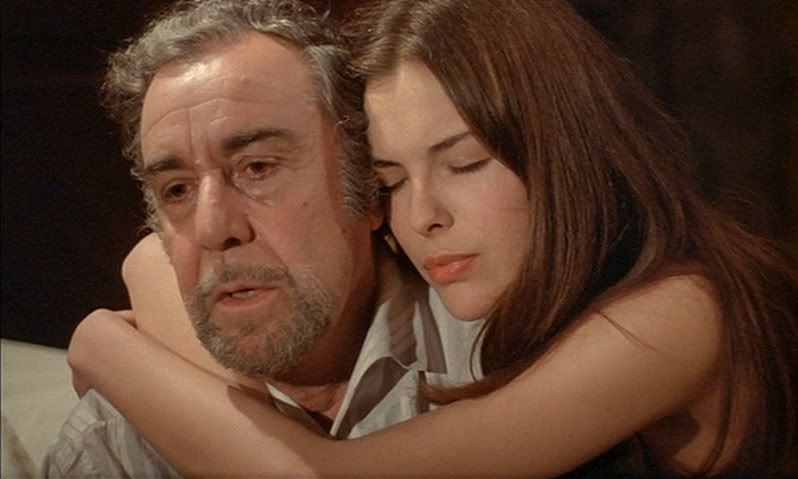It is a superb example of 'double description' (although the choice of two actresses was an afterthought!), and particularly how contradictory descriptions describe a complex topology of understanding which can have the vertiginous effect of a 'black hole'. I think the theme of the film is 'wanting', and this is making me think about broader themes relating to education, servitisation and marketing. The confusion that Fernando Rey displays is also making me think about the 'topology' of his experiences: his is a tortured rationality which always sees clearly to a horizon, only to be frustrated as the horizon is illusory as he treads the rim of some crazy topological knot-like form or a black hole...(which?)
We might be tempted to think of him as a victim, but I don't think this is the case. What he learns he discovers in himself: he can only ever be mad with himself. With each manic act he understands the hopelessness of his condition. But I think this is the condition of all wanting - Bunuel has been able to establish the conditions for revealing it most starkly. What Fernando Rey never does is to look at the patterns of his experience from a distance. That is left to the audience, who at a distance can map out more clearly what they are seeing.

I think the topology of wanting tends to be like a 'black hole'. With ever-increasing urgency it sucks us in, disorientates us, leaves us gasping for something to save us. (this reminds me of Bateson's 'complementary schizmogenesis'). The scramble to escape its clutches leads us to act: shopping, art, sex, religion and education are what we reach for. The art of the marketeer is to lead us to the 'black hole' in the first place; to position us in that pathology of wanting that we reach for the services and products they want us to consume. This is not to say that consumption is of itself pathological - it may be good - but the mechanism by which we come to want things is similar whether those things are good or bad.
I think that mechanism is a function of our personal topology, and that this is a topology of paradoxical surfaces punctuated (like the universe) with 'black holes'. Getting to know one's topology is at the heart of the human goods of education. But wanting to get to know one's topology is to walk on the rim of another black hole. Society and Universities both want to lead people into education. The coalesce in positioning learners on the edge of a black hole with all the questions about their futures and human life in general being thrown in the air. This could be (and I think often is) done cynically. Might it be better (and more honest) to sign-post the black holes that we know about, always carrying the caveat that "this sign also leads to a black hole"!


No comments:
Post a Comment